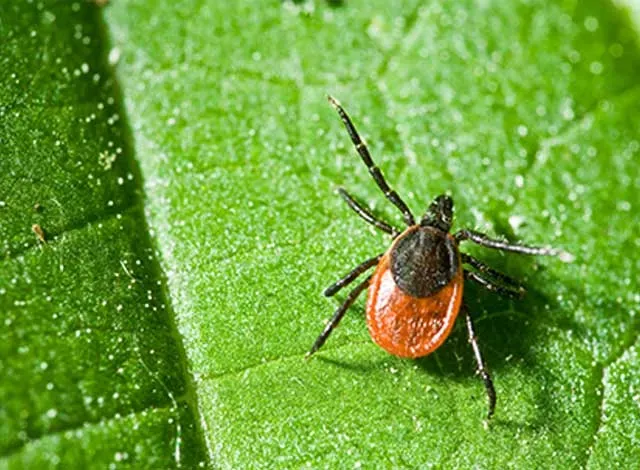Ticks are notoriously bad at social distancing, and as you hit the trails this season it’s important you take precautions to keep them at bay.
Black-legged ticks are on the rise in Eastern Ontario and can carry Lyme disease, which is passed to humans through tick bites. Left untreated, Lyme can cause chronic neurological and physical problems including memory loss, mobility issues and heart conditions.
But don’t let that stop you from getting outside. Taking reasonable precautions should prevent most tick bites:
- Always stay on the path to avoid the long grasses and underbrush they live on
- Wear light-coloured long pants and sleeves
- Tuck your pants into your socks
- Use bug spray that contains DEET or picaridin
- Sweep your clothes with a sticky lint roller before you leave the site
- When you get home, do a thorough tick check of your entire body, including in your armpits, groin area, behind your ears and along hairlines.
If you do find a tick attached to you, remove it as soon as possible, being sure to leave the entire tick intact. Contact your doctor if the tick looks engorged or you think it has been attached for more than 24 hours.
If the tick was attached for less than 24 hours and its body does not appear swollen from feeding, you should still be on the lookout for signs and symptoms of Lyme disease for the next 32 days. If you do develop symptoms, see a doctor.
Protect against poisonous plants
Tick precautions can also help protect against noxious plants like poison ivy, wild parsnip and giant hogweed. These all have a presence in Eastern Ontario, lining roadside ditches, taking over empty fields and popping up along nature trails and woodlots.
Touching these plants or their sap can result in painful skin rashes and burns, particularly wild parsnip, which is sun-activated and can cause severe burns and even blindness in extreme cases.
Avoid contact with these plants by wearing long pants and sleeves and close-toed shoes and socks. The sap from these plants can contaminate your clothes, so be careful when undressing and handling your clothes after an outing.
If you do come in contact with the plants, wash the area with soapy water and stay out of the sun. If the sap gets in your eyes, wash immediately and contact a doctor.
And of course, in the midst of a global pandemic trail users are reminded to keep two metres distance and wear a mask around anyone not from their household, to turn back if the site looks too busy and to stay home if they’re sick.
While these risks are real and must be managed, getting outside has never been more important, and the RVCA is committed to providing safe and beautiful trails to help watershed residents connect with nature.
Find your local trail here: www.rvca.ca/conservation-areas




